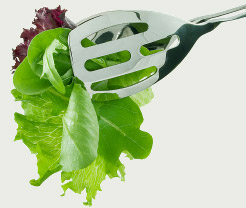
How many calories do we burn with everyday activities? Increasing your activity level may be easier than you think.
Posted in General Health & Wellness on May 14, 2011. Last modified on February 08, 2020. Read disclaimer.
As we age, regular exercise that gets our heart going becomes more and more important, for reasons you probably already know:
- It may help lower high blood pressure, plus help to prevent and control diabetes.
- It can help you lose excess weight or stay at a healthy weight, which also helps to lower your risk of heart disease.
- Being a couch potato greatly increases your risk of developing heart disease and suffering a heart attack.
+ Free Shipping & Returns on Eligible Items.
(*Amazon's Top 100 list updated hourly.)
While it's true that sedentary activities like working at a computer or watching TV do burn a tiny amount of calories, what the heart needs is a moderate-to-vigorous physical experience, most days of the week, to stay healthy. You don't need to join a gym or take up marathon running, either. This chart shows the calories burned per hour for a variety of activities by a person weighing 154 pounds (a lighter person burns fewer calories; a heavier one burns more).
| Moderate Physical Activity |
Calories Burned per Hour |
|---|---|
| Hiking | 370 |
| Light gardening/yard work | 330 |
| Dancing | 330 |
| Golf (walking and carrying clubs) | 330 |
| Bicycling (less than 10 mph) | 290 |
| Walking (3.5 mph) | 280 |
| Weight lifting (light workout) | 220 |
| Stretching | 180 |
| Vigorous Physical Activity |
Calories Burned per Hour |
|---|---|
| Running/jogging | 590 |
| Bicycling (more than 10 mph) | 590 |
| Swimming (slow freestyle laps) | 510 |
| Aerobics | 480 |
| Walking (4.5 mph) | 460 |
| Heavy yard work (chopping wood, for example) |
440 |
| Weight lifting (vigorous) | 440 |
| Basketball (vigorous) | 440 |
Generally, the more vigorous your activity, and the more time you spend on it, the more health benefits you'll receive. But any exercise is better than no exercise, so don't shy away from moderate-intensity activities, too. When done briskly for 30 minutes or longer most days of the week, the activities listed in the box below on the right side can help condition your heart and lungs, and reduce your risk of heart disease.
| Vigorous Activity |
Moderate Activity |
|---|---|
| Aerobic dancing | Bicycling (less than 10 mph) |
| Basketball | Downhill skiing |
| Bicycling (more than 10 mph) | Dancing |
| Cross-country skiing | Gardening |
| Hiking (up hill) | Golf (on foot) |
| Ice Hockey/field hockey | Hiking (flat ground) |
| Jogging/running (at least 5 mph) | Horseback riding |
| Jumping rope | Roller skating/ice skating |
| Soccer | Softball |
| Stair climbing | Swimming |
| Tennis (singles) | Tennis (doubles) |
| Walking briskly (4.5 mph) | Walking moderately (3.5 mph) |
| Weight lifting (vigorous effort) | Weight lifting (moderate effort) |
| Yard work (heavy) | Yard work (light) |
Tips to help get you started exercising
Experts advise that one of the best ways to start and stay with activity is to find something you enjoy, and that fits into your life. If you can't stand treadmills, walk; if bicycling hurts your back, try a recumbent (leaning back) bike; if you love to swim but a health club isn't in your budget, how about the local YMCA?
Other tips include involving friends or family members, breaking your daily activities into smaller amounts (if this is all your schedule allows), look for "fitness opportunities" such as time you'd normally spend watching TV.
Tactics like these eliminate excuses from the start, and make it easier to fit activity around you and your life -- instead of vice versa.
This year, give your heart the attention it deserves, and get moving!
From the Research Desk...

Eating more green leafy veggies may reduce diabetes risk
Leicester, United Kingdom: Eating more leafy green vegetables can significantly reduce the risk of type 2 diabetes, it was reported in the British Medical Journal.
Scientists reviewed six studies that involved over 220,000 participants, and found that eating 1.5 extra servings of green leafy vegetables a day reduced the risk of type 2 diabetes by 14%. Eating more fruits and vegetables combined didn't significantly affect this risk.
Study authors suggest that green leafy vegetables may reduce type 2 diabetes risk due to their high antioxidant and magnesium content. They suggest that offering tailored advice to encourage people to eat more of these vegetables should be investigated further.
Benefits of walnuts and walnut oil for managing stress
University Park, Pennsylvania: Adding walnuts or walnut oil to the diet may help improve the body's reaction to stress, new research from Penn State reveals.
In the study, 22 healthy adults were given all meals and snacks during three diet periods of six weeks each. The researchers found that including walnuts and walnut oil in the diet lowered both resting blood pressure and blood pressure responses to stress in the laboratory. All it took to see these results was 9 whole walnuts (18 halves).

"This is the first study to show that walnuts and walnut oil reduce blood pressure during stress," said Sheila G. West, associate professor of Biobehavioral Health at Penn State. "This is important because we can't avoid all of the stressors in our daily lives. This study shows that a dietary change could help our bodies better respond to stress."
A small group of participants were given flax oil in addition to walnuts/walnut oil. This group showed improvements in a test of vascular health and a reduction in c-reactive protein, a measurement of inflammation.
New England Tips for Healthy Living...
The strong between stress, cortisol and weight gain
Ever find yourself overeating, or eating unhealthy foods when you are stressed out? This could be more than just so-called emotional eating. A hormone that helps your body deal with stress can also lead to hunger cravings -- and eventual weight gain -- when your stress load becomes too heavy.
Cortisol -- the "stress hormone" that can pack on the pounds.
The hormone cortisol is secreted when the body experiences stress. Cortisol is typically beneficial to the body, playing a significant role in the body's utilization of fat, protein and carbohydrates, as well as the regulation of cardiovascular function. However, excessive levels of cortisol, usually caused by a state of chronic stress, can lead to a number of health problems, including:
- Impaired brain function
- Suppressed thyroid function
- Decreased bone density
- Increased appetite
- Weight gain (particularly in the abdomen)
- Depression
The "stress hormone" appetite.
Cortisol is a powerful signal to increase appetite and store fat. Higher levels of cortisol tell your brain that you're hungry. They also tell your fat cells to store as much fat as they can without releasing it. Being in a state of chronic stress can lead to cravings for high-fat, high-carb foods -- and this reactive habit can lead to dangerous weight gain, specifically around the waist, high blood pressure, elevated lipids (fats in the blood), elevated blood sugar levels and type 2 diabetes. In fact, chronic stress is considered a major contributing factor to obesity.
Ways to decrease stress.
Reducing stress is easier said than done, but by doing so, you can help decrease the impact it can have on your body. Incorporate these techniques for stress reduction into your daily life:
- Exercise regularly (both aerobic, like walking, swimming and running as well as anaerobic strength building).
- Get sufficient sleep
- Practice relaxation techniques, like yoga, tai chi, deep breathing and positive mental imagery
- Avoid excessive sugar and caffeine
Certainly, some stress is unavoidable. But by adopting smart lifestyle habits, you can help avoid its adverse effects on your health and weight.

 Whole Grain Cooking Guide
Whole Grain Cooking Guide Avoiding and Treating Bug Bites
Avoiding and Treating Bug Bites Plastic Water Bottle Safety Concerns
Plastic Water Bottle Safety Concerns Should Everyone be Eating a Gluten-Free Diet?
Should Everyone be Eating a Gluten-Free Diet? Healthy Foods: Pomegranate
Healthy Foods: Pomegranate Tips for Building a Child's Self-Esteem
Tips for Building a Child's Self-Esteem Helping Your Child Succeed in School
Helping Your Child Succeed in School Potential Benefits and Dangers of Raw Milk
Potential Benefits and Dangers of Raw Milk How Many Calories are Burned Doing Everyday Activities
How Many Calories are Burned Doing Everyday Activities